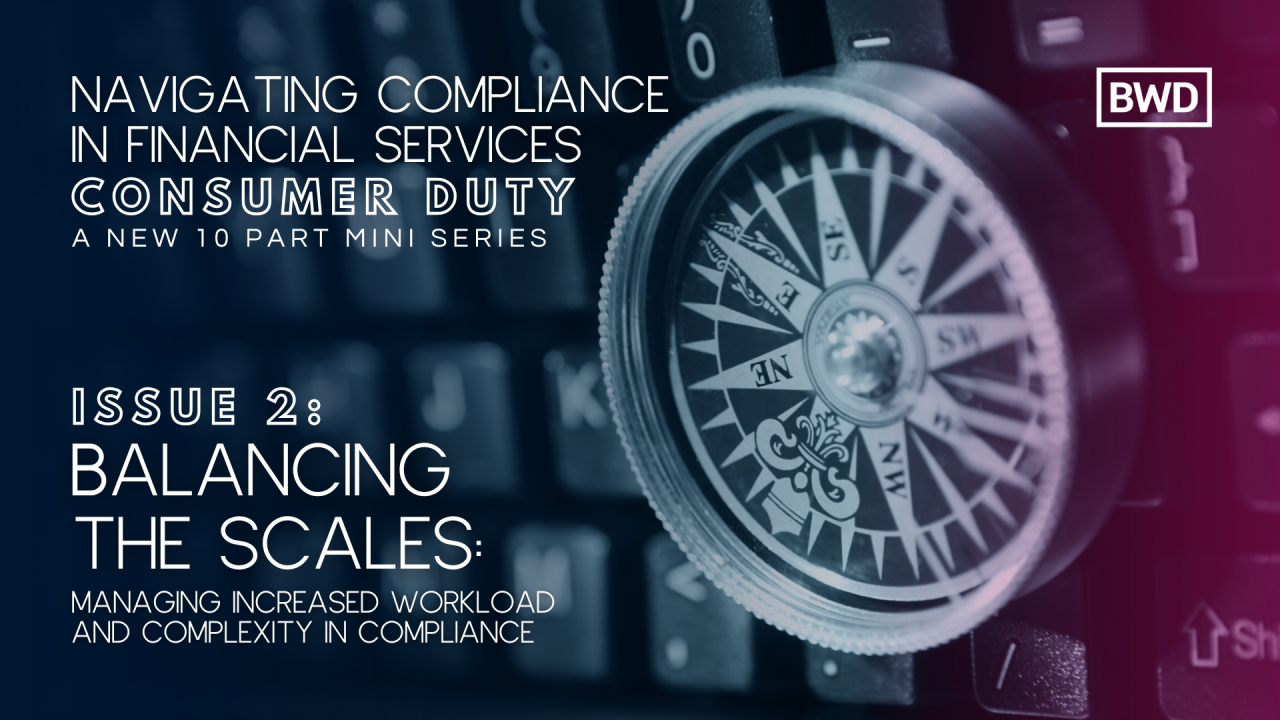
Managing Increased Workload and Complexity in Compliance
Mark Penswick
Trusted Partner in Retained Recruitment for Financial Services | Delivering Quality, Speed, and Precision
As compliance professionals in the UK's financial services sector, you are no strangers to the weight of responsibility that our roles carry. Yet, with the advent of the FCA's Consumer Duty, the workload and complexity of the tasks have surged to unprecedented levels. The pressure to ensure that firms deliver good outcomes for retail customers while navigating a labyrinth of regulatory requirements can often feel a tad overwhelming at times.
The Complexity Conundrum
The introduction of the Consumer Duty aims to elevate the standards of consumer protection, demanding that firms place their customers' needs at the forefront of their operations. While the objective is clear and commendable, the journey to achieving it is fraught with complexity. Compliance professionals must grapple with extensive documentation, rigorous risk assessments, and the meticulous monitoring of business practices.
The sheer volume of regulatory requirements can lead to a significant increase in workload, stretching resources thin and heightening the risk of burnout among compliance teams. This complexity can also result in inefficiencies, where time and effort are disproportionately spent on navigating regulatory intricacies rather than focusing on strategic, value-adding activities. Is the implementation of consumer duty increasing the cost of Advice and increasing the Advice Gap?
The Need for Adequate Resources and Support
In this challenging environment, the call for adequate resources and support has never been more urgent. Compliance teams need more than just additional personnel; they require robust systems, advanced tools, and unwavering support from senior management to manage the increased workload effectively.
Strategies for Success
The Human Element
At the heart of these strategies lies the human element. Compliance professionals are the linchpins in the effort to uphold regulatory standards and protect consumer interests. Recognising the importance of their role and providing the necessary support is essential to prevent burnout and maintain high morale.
Looking Forward
The increased workload and complexity associated with the Consumer Duty are unlikely to diminish soon. However, by investing in technology, enhancing training, promoting collaboration, securing leadership support, and adopting risk-based approaches, compliance professionals can navigate these challenges more effectively.
As we move forward, let us advocate for the resources and support we need to thrive in our roles. By doing so, we can not only manage the increased workload and complexity but also contribute to a more robust and consumer-centric financial services industry.
I invite you to share your experiences and strategies in managing the increased workload and complexity in compliance. How have you navigated these challenges in your organization? What support have you found most valuable? Let's collaborate and learn from each other to strengthen our collective efforts in compliance.
?